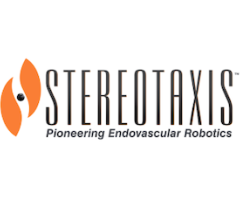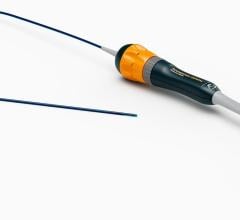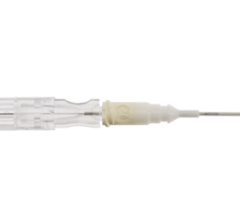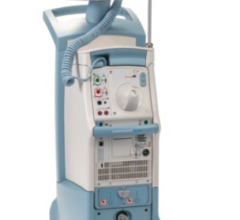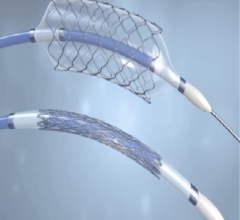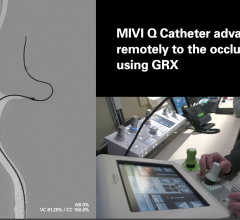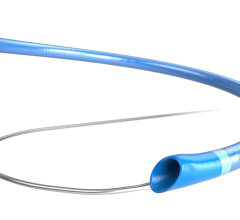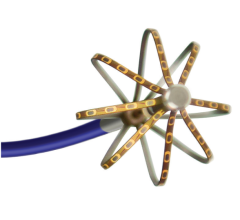June 26, 2008 - Loyola University Hospital has become the first Chicago-area hospital to treat heart problems with a magnetically guided catheter that is reportedly more precise than manual catheters and easier on the heart.
The Gentle Touch catheter has a metal tip. It is guided by two computer-controlled magnets, one on each side of the patient.
The magnetically guided catheter can be used to treat irregular heartbeats, to open clogged arteries and to place electrical leads for certain types of pacemakers. The $1.5 million system is made by Stereotaxis, Inc.
"It allows you to go exactly where you want to go in the heart, with millimeter accuracy," said David Wilber, M.D., director of Loyola's Cardiovascular Institute and Division of Cardiology.
The system makes a skilled cardiologist even better, said Joseph Akar, M.D., an interventional cardiologist at Loyola who specializes in the treatment of irregular heartbeats. "I think we will get more consistent results," Dr. Akar said. "It extends the physician's range of skills." Akar is an assistant professor in the department of cardiology at Loyola University Chicago's Stritch School of Medicine.
One of the first patients Dr. Akar treated with the new system is Susan Surges, 54, of Minooka, IL. Before her surgery, Surges' heart would occasionally begin beating as fast as 200 times a minute. "It would feel like it was pounding out of my body," she said. "It would hit without warning, and it was scary." Since her treatment, however, Surges has had no further episodes of the condition, called supraventricular tachycardia.
A catheter is a thin tube that typically is inserted in an artery in the groin and guided up to the heart. The standard manual catheter is stiff but flexible. The cardiologist guides it by gently pushing, pulling, twisting and turning. Manipulating a manual catheter is somewhat like writing with a pencil by holding the eraser end.
In rare cases, a stiff catheter can puncture a hole in the heart. While the hole almost always will heal by itself, the cardiologist has to end the procedure. And in a small minority of such cases, surgery is required to repair the hole. By contrast, the magnetically guided catheter is soft and flexible, so it's gentler on the heart.
The new catheter is guided by magnets mounted on pivoting arms on either side of the patient. As the magnets pivot, the magnetic field changes, pulling the catheter in the desired direction.
In traditional systems, the cardiologist stands over the patient while manipulating the catheter. In the new system, the cardiologist sits in a control room next to the operating room. On a computer screen, the cardiologist maps out the catheter's next move; the computer executes the move by adjusting the magnetic field.
"Instead of controlling the catheter by hand, you control it by computer," Dr. Wilber said.
"It's all about precision." Dr. Wilber is a professor of cardiovascular sciences at Stritch.
One of the main uses of the system will be in treating atrial fibrillation and other types of irregular heartbeats. These conditions cause the heart to beat either too slowly or too quickly, resulting in such symptoms as weakness, fatigue and palpitations.
An irregular beat is caused by erratic electrical activity in the heart. To treat the condition, the cardiologist burns away small areas in the heart where the erratic electrical signals are coming from. The tip of the catheter emits radio frequency energy that burns tissue. This procedure is called an ablation.
It often is challenging to reach spots that are triggering irregular heartbeats. The cardiologist must negotiate the catheter through difficult twists and turns. But magnetic navigation is much more precise than manual techniques. The new method also reduces the amount of X-ray exposures to both patients and physicians.
The magnetic navigation system will be used to treat hundreds of patients each year for irregular heartbeats, coronary artery disease and heart failure. "It's a big step forward," Dr. Wilber said.
The magnetic navigation system is offered by Loyola University Health System's Center for Heart & Vascular Medicine. The center, located in the hospital's new $120 million patient tower, includes four new cardiac catheterization labs and four new cardiac electrophysiology labs. The comprehensive range of services include initial screenings; non-invasive diagnostic echocardiograms; vascular ultrasound; diagnostic angiography; catheter ablations; pacemaker/device implantation; carotid, coronary, peripheral and endovascular interventions and vascular, cardiovascular and thoracic surgery.
For more information: www.luhs.org

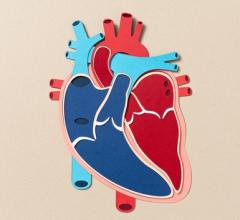
 October 28, 2025
October 28, 2025 

